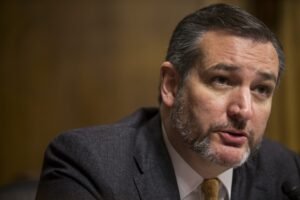In a significant development that could reshape the political landscape, former President Donald Trump has declared his commitment to introducing a constitutional amendment for term limits if he secures the presidency once again. This breaking announcement, made through his official channels, has ignited discussions and speculation about the potential implications for the future of American governance.
Term limits for elected officials, including the President, have been a longstanding subject of debate in the United States. The idea behind term limits is to prevent the concentration of power in the hands of a single individual and promote a more dynamic and responsive political system. Currently, the 22nd Amendment to the U.S. Constitution imposes a two-term limit on the presidency, enacted in the aftermath of Franklin D. Roosevelt’s unprecedented four terms in office. Trump’s proposal suggests a reevaluation of this limit or potentially the introduction of new restrictions.
The announcement comes as part of Trump’s broader vision for reforming the political system, aligning with his populist approach to governance. Supporters argue that term limits could foster a more diverse and evolving leadership, preventing individuals from becoming entrenched in power and fostering a culture of accountability. However, opponents express concerns about the potential disruption to experienced leadership and the stability that continuity can bring.
The timing of Trump’s announcement is noteworthy, as it precedes any official declaration of his candidacy for the upcoming presidential election. This move could be a strategic effort to distinguish himself from potential rivals within his party and underscore his commitment to challenging the status quo. Additionally, it aligns with Trump’s populist appeal, positioning him as a candidate in touch with the concerns of everyday Americans who may harbor skepticism about the concentration of power within the political elite.
Political analysts are closely monitoring the reactions to this proposal from both within and outside the Republican Party. Trump’s influence remains significant within the GOP, and his policy proposals can shape the party’s agenda. The idea of term limits for elected officials has historically garnered support from various quarters, transcending traditional partisan lines. If Trump’s proposal gains traction, it could become a focal point in the broader discourse on political reform in the lead-up to the elections.
Would you support a constitutional amendment for term limits?


